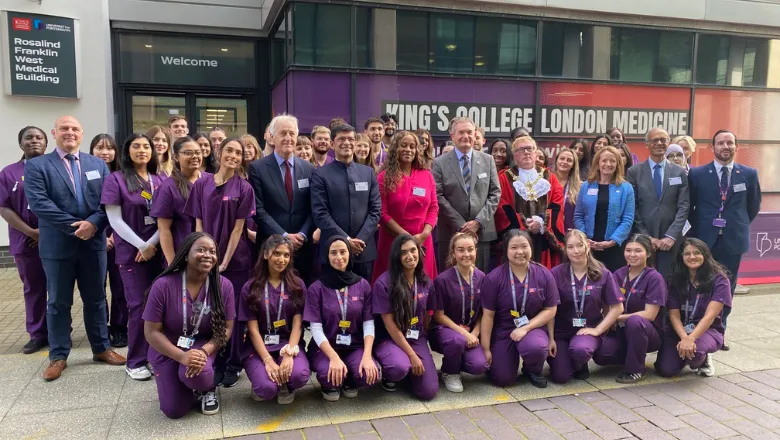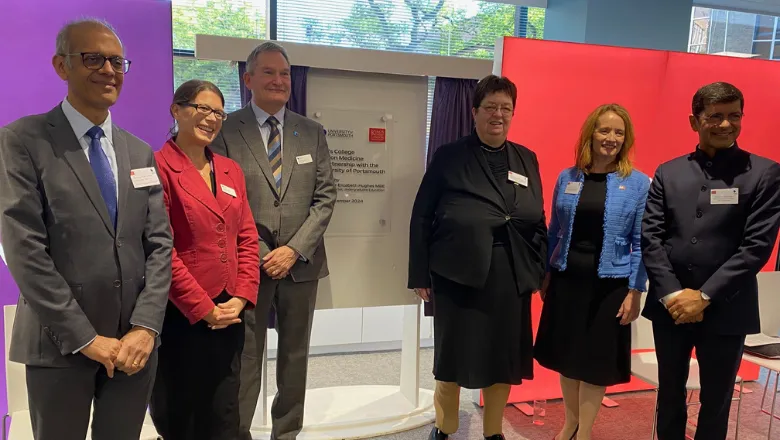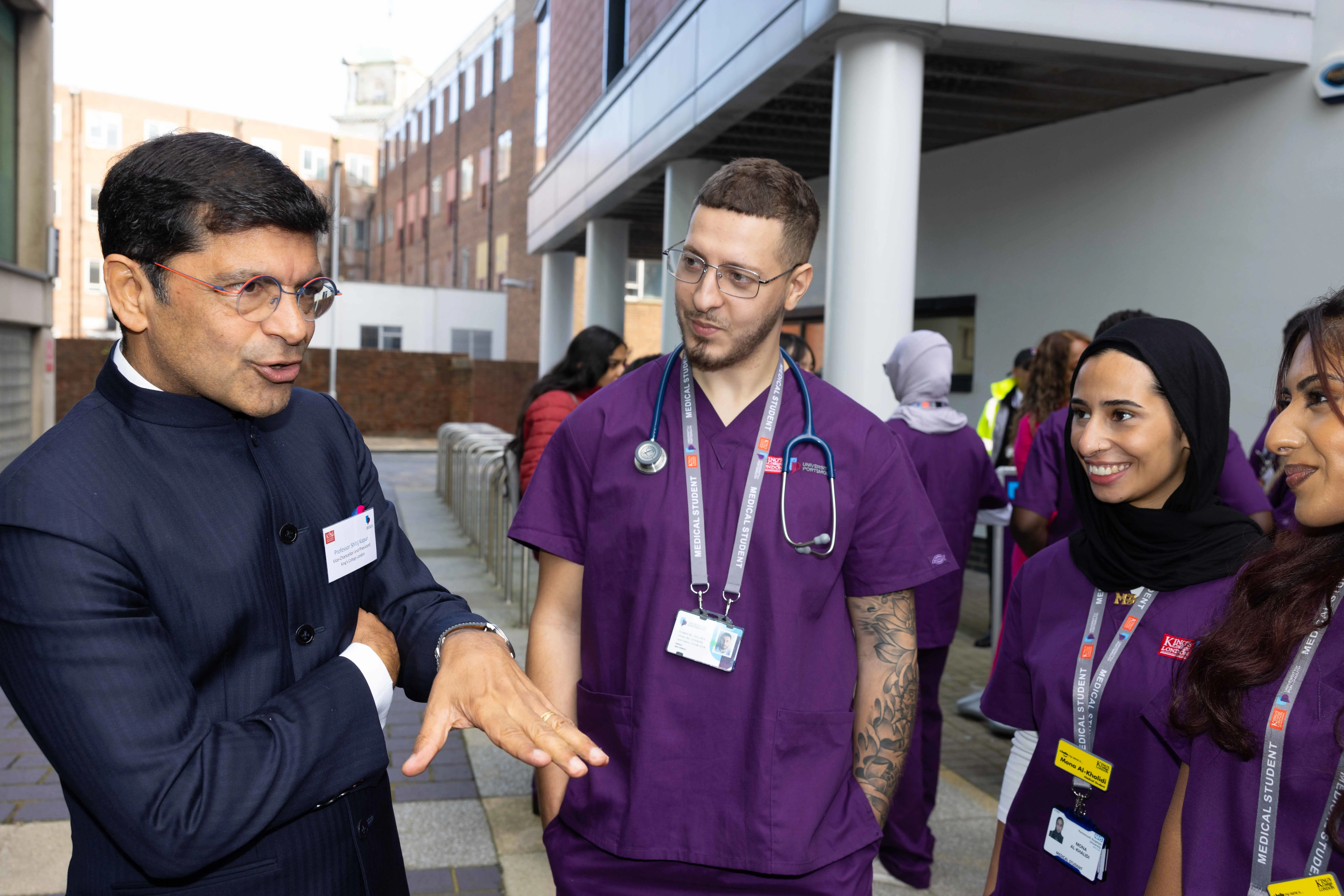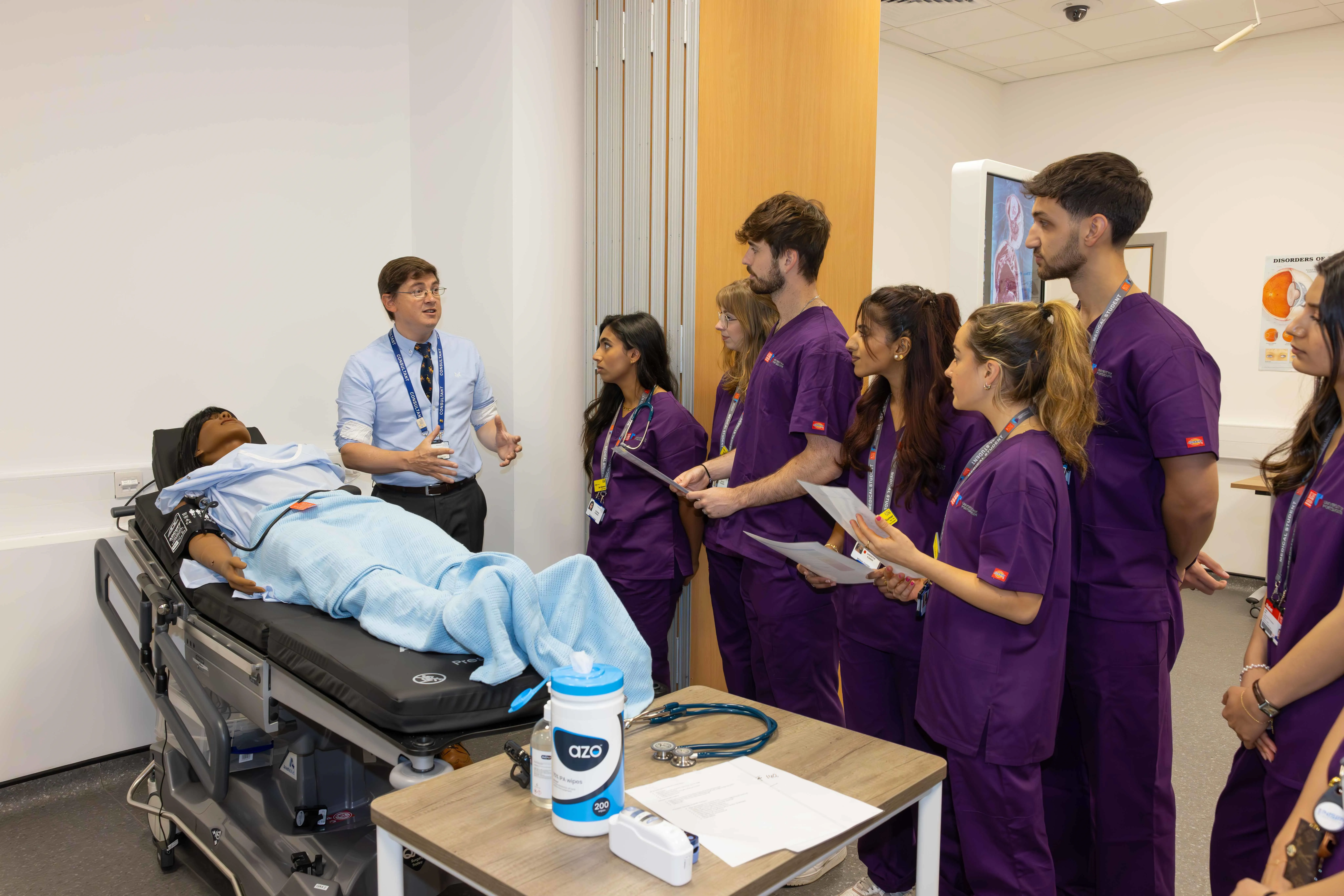Universities play a critical role in addressing the challenges facing us today, and the impact of this partnership will be felt not only in the Portsmouth area but far beyond as we prepare the next generation of medical professionals.
Professor Shitij Kapur, Vice-Chancellor & President of King’s College London
13 September 2024
UK's first of its kind medical degree course opens
In partnership with King's College London, a first of its kind branch medicine course opened today at the University of Portsmouth.

The 54 new students, from Hampshire to Edinburgh, are the first in the UK to study medicine in a branch of an established medical school, in this case, using donated funded places from King’s. The branch model marks an innovative solution to the shortage of doctors in the UK.
King's and the University of Portsmouth hope it will expand opportunities to study medicine in the south of England where there is a severe shortage of general practitioners (GPs). Portsmouth is one of the country’s worst regions for the number of GPs with fewer than 40 per 100,000 patients (Nuffield Trust study, 2020)

King's four-year Graduate Entry Medical programme previously accepted 23 students a year. With a Portsmouth branch, it will now be training 77 medics, using the expertise of academics from both institutions. Graduates will learn face-to-face with patients and medics from across the region and in four years, be awarded a King’s Bachelor of Medicine and Surgery degree (MBBS).
Nationally, NHS England has agreed to fund an extra 350 medical students from next year, with plans to increase that further, particularly in regions with the worst shortages.
GKT’s School of Medical Education has been delighted to partner with the University of Portsmouth over the last two years to develop a graduate entry medical degree that addresses physical health alongside medical health and population health alongside biosciences. Delivered alongside the University of Portsmouth, NHS Trust and Community Health Partners, the programme will shape graduates into caring, compassionate doctors, making a positive difference in the local area and across society.
Professor Nicki Cohen, Dean of Medical Education within the Faculty of Life Sciences & Medicine at King’s
Under the new increased funded students figure, the number studying at Portsmouth is expected to rise from next year to 67 student doctors.
The opening was attended by leaders in healthcare from across Hampshire and Isle of Wight, as well as the King’s medicine degree course team and King’s Vice-Chancellor and President Professor Shitij Kapur, who said: "We are incredibly proud to be working with the University of Portsmouth to deliver our Graduate Entry Medical programme. Universities play a critical role in addressing the challenges facing us today, and the impact of this partnership will be felt not only in the Portsmouth area but far beyond as we prepare the next generation of medical professionals. We are very grateful for the support of local trusts and other partners in the development of this programme, which serves as a powerful example of what can be achieved through partnership. We wish all our new students a fruitful and exciting first year on the South Coast.”
Professor Elizabeth Hughes, Medical Director in the Workforce Training and Education Directorate of NHS England, who has supported the new model in Portsmouth, was guest of honour at the official opening event.
It is our ambition that this new medical degree programme in a new state of the art purpose-built facility will contribute to alleviating the local shortfall in medics and improve access to healthcare for local people... We welcome the King’s College London colleagues who will be working hand in glove with our own academics and our region’s NHS Trusts and GPs to train urgently needed doctors.
Professor Graham Galbraith, Vice-Chancellor at the University of Portsmouth

Vice-Chancellor at the University of Portsmouth, Professor Graham Galbraith hailed the new Medical School branch as valuable to the Portsmouth community and exciting for the growth and development of the university.
The branch builds on the successful existing partnership between both universities in the delivery of King’s undergraduate dental education at the University of Portsmouth.
Recruitment into both general practice and other specialities is just one of the areas the medical school hopes to help improve.
Portsmouth has higher than average levels of social deprivation, placing significant pressures on both primary and secondary care. This programme seeks to alleviate both in terms of the graduates it produces but also through the wider benefits that a medical school invariably brings to the local community it serves.
Applications via UCAS for 2025 entry to the new branch close in mid-October.

